General Secretary To Lam talks with people when inspecting the activities of two-level local government in Phuc Thinh commune, Hanoi city_Source: tienphong.vn
Ho Chi Minh style - exemplary style
President Ho Chi Minh, a shining example, an exemplary embodiment for cadres, party members and all people to follow . Naturally, Ho Chi Minh's style permeates his thinking and actions, is a typical cultural trait in his leadership and management, in his communication and behavior, is exemplary in his behavior, sets a shining example, sacrifices his whole life, and is devoted to the country and the people. President Ho Chi Minh's exemplary style is reflected in the following main features:
Set an example of steadfastness in the Party's ideological foundation, steadfastness in the goal and path of national independence associated with socialism.
President Ho Chi Minh always considered Marxism-Leninism as a “miraculous handbook” (1) , a “shining sun” (2) illuminating the path of the Vietnamese revolution. He founded and trained the Communist Party of Vietnam , leading our Party to apply and creatively develop Marxism-Leninism in accordance with the specific and unique conditions of our country. Under the light of Marxism-Leninism, he and the Party Central Committee led our country’s revolutionary cause to overcome all difficulties and challenges, regain national independence, unify the country, and lead the whole country to socialism. Being steadfast on the path he chose, national independence associated with socialism, has become the red thread, the “unchangeable” throughout the Party’s line and the Vietnamese revolution in history, present and future.
Set an example of scientific, democratic, and practical leadership style
The leader must first of all have a scientific and democratic leadership style. In working and leading, President Ho Chi Minh always required leaders to go deep, closely, investigate, research, grasp the work, grasp the people, grasp the specific situation; have clear goals, the set programs and plans must be appropriate; check the implementation of subordinates and the masses promptly, practically, with focus, grasp typical, specific and comprehensive examples. Must practice the style of "thinking with the mind, seeing with the eyes, listening with the ears, walking with the feet, speaking with the mouth, doing with the hands", must be careful, agile, timely, do things thoroughly; regularly pay attention to drawing experience, summarizing practices. “After each task, we need to draw experience. Experience of each cadre and each locality. Experience of all cadres and localities. Experience of failure and experience of success. Then summarize and disseminate those experiences to all cadres and all localities. Each cadre and each locality will learn good experiences, avoid bad experiences, and apply old experiences to new tasks” (3) .
Respecting the people is a natural thing in the consciousness and actions of President Ho Chi Minh. He lived among the people, was protected and sheltered by the people, and at the end of his life, he returned to the people. President Ho Chi Minh's persuasiveness was not based on power, but on his style. He paid attention to listening to opinions and resolving legitimate suggestions from the masses, was ready to accept criticism from the masses and welcomed criticism from the masses. He never put himself above others to be flattered or honored. He had a completely new style of behavior between leaders and the masses, loving, esteeming, respecting people, being tolerant, generous, elevating people... all of that contributed to creating the image of a leader who was both dignified, close, simple, and full of miraculous charisma and influence. Being attached to the collective, respecting the collective, promoting the strength of the collective, and being autocratic and arbitrary were very foreign to President Ho Chi Minh. He always respects everyone's opinions, regardless of position or rank.
During 10 years (1955 - 1965), despite his old age and busy work, with his close and practical leadership style, President Ho Chi Minh visited over 700 locations in all localities, farms, factories, army units, agricultural cooperatives... He said: "When cadres go to the cooperative, they do not just go to the manager's house to have a clean place to stay and have a decent meal, but they must go to the people" (4) . Criticizing the habit of "high-ranking officials returning to the village", he requested: "We must make it so that every time a cadre returns to the village, the people warmly pat him on the shoulder and invite him to drink water. If a cadre returns and the people spread out flower mats and catch chickens to cook rice, that is not acceptable. Only when the people consider cadres as people of the people, and no longer bow to them, will they dare to speak up and criticize" ( 5) .
Set an example of solidarity and gathering talents
The leader must practice the lesson of President Ho Chi Minh: Unity, unity, great unity, success, success, great success. He is the nucleus, the soul of the great unity of the entire nation, successfully implementing the resistance war, nation building, and building socialism; unity in the Party, comrades from the Central Committee to the Party cell must preserve unity and unanimity as if preserving the pupil of their eye, uniting the entire nation; uniting with the people of the world "the proletariat from all directions are brothers", "yellow, black, white, red are all brothers"... He is an outstanding symbol of a person capable of uniting, gathering resources with his own example of intelligence, morality, and style, becoming a flag to gather and lead the forces to believe and follow, daring to think, daring to do, daring to act resolutely, daring to sacrifice for the common good.
Unity is the decisive factor for the success of the revolutionary cause. On the journey to find a way to save the country and lead the country, President Ho Chi Minh trained and coached many excellent students, elite leaders of the Party and State; gathered and united patriotic, loyal, intellectual youth, ready to fight and sacrifice for the Party and the revolution; highly respected and virtuous intellectuals and scholars; or Vietnamese intellectuals abroad, talented, intelligent, impressed by his prestige and heart, voluntarily left behind glory and wealth to return home to participate in the resistance war and build the country (6) ...
Set an example of self-cultivation, training and cultivating revolutionary ethics
The words and actions of cadres and party members, especially leaders, are extremely important to the revolutionary cause, and have a great impact on the masses. When leaders are weak in personality and have slow working style, it will lead to many consequences, causing the risk of changing the nature of the Party, even affecting the survival of the Party and the regime. President Ho Chi Minh required: "Comrade ministers, deputy ministers and leaders must always be exemplary in all aspects, must set a shining example of revolutionary ethics: diligence, integrity, impartiality, must maintain a style of hard work, must constantly improve revolutionary spirit" (7) , President Ho Chi Minh always practiced combining words with practice and setting an example. His influence and education were shown in the fact that he set a good example throughout his life, words went hand in hand with actions, and thoughts and personality were completely unified. His example is more convincing than any words, shown in the way he eats, dresses, lives, and his simple, frugal, honest lifestyle... When visiting the stilt house at the President Ho Chi Minh Relic Site, the Vietnamese people and international friends witnessed the simple scene and were moved to tears, not believing that this was the place where a head of state lived and worked. When he was about to leave, he requested: "Do not organize a grand funeral, so as not to waste the people's time and money" (8) . "On the grave, a simple, spacious, sturdy, cool house should be built so that visitors have a place to rest" (9) . He always thought of positive things for life, for future generations when he reminded them to plant trees: "Over time, many trees will form a forest, which will be good for the landscape and beneficial for agriculture " (10) .
Set an example of responsibility and sense of organization and discipline
According to President Ho Chi Minh, the sense of responsibility shows the unceasing efforts in every word and action every day, expressed in each person's duty to the organization, to the Party, to superiors, responsibility to the people, to the collective, to those around them and to themselves. That is the purest expression of human ethics, civic ethics, wholeheartedly striving for the cause of the people, of the country. That is also the ethics, the qualifications of a true cadre, party member: "What is the sense of responsibility? When the Party, the Government, or superiors assign us a task, no matter how big or small, difficult or easy, we will put all our spirit and strength into doing it thoroughly, overcoming all difficulties, making it successful. Doing it carelessly, doing it for the sake of it, doing it easily and hard to give up, beating the drum and dropping the stick, doing it as it comes, etc., is not having a sense of responsibility" (11) .
President Ho Chi Minh's entire life was an exemplary embodiment of responsibility and sense of organization and discipline. In his leadership practice, President Ho Chi Minh frankly admitted his mistakes and was moved to tears when reporting to the National Assembly about the mistakes in land reform. At the 10th Central Conference (term II), President Ho Chi Minh suggested: "The Conference must examine and correct mistakes quickly, without being perfectionist. On the basis of strict discipline to protect the Party" (12) , he criticized himself for being "bureaucratic, not close to the masses, not close to reality, only looking at reports, believing in the reporter" (13) . According to him, the invincible strength of the Party lies in the spirit of self-discipline and strict sense of organization and discipline of cadres and party members. He pointed out that the Party's tasks are very heavy, complicated, and long-term, and must fight against hostile forces that always seek ways to sabotage the Party and the cause of building socialism. Therefore, in terms of organization, the Party must be built in a centralized and unified manner, while cadres and Party members must maintain a sense of organizational discipline to be able to fulfill its glorious mission.
Ho Chi Minh's exemplary style is forever engraved in the hearts of every Vietnamese person. Poet To Huu once wrote:
A life of purity, no gold or silver
Fragile cloth, infinite soul
More than bronze statues exposed to the trails (14)
The significance of studying and following Ho Chi Minh's exemplary style by current leaders of organizations, agencies and units
The leader has a particularly important role and position in an agency or organization, carrying out the responsibility of setting an example, being a model of self-criticism and criticism for subordinates to follow.
In the Party's Regulations on setting examples, cadres and party members must be responsible for setting examples from top to bottom, "first from top to bottom", "first from inside, then from outside", and first of all, Politburo members, Secretariat members, and Central Executive Committee members. With important positions and roles, leaders are required to meet high requirements for scientific, practical, and effective leadership styles, setting good examples in many aspects. “Strategic-level cadres include leaders of Party and State agencies, leaders of departments, ministries, branches, and work at the central and local levels. The task of strategic-level cadres is to decide and solve strategic issues of the Party, State, nation, and people. The requirements for strategic-level cadres are to have strategic thinking and vision, “look far and wide”, grasp the trends of the times; have pure political mettle, ideals, and revolutionary ethics, and have the aspiration to develop the country; have theoretical knowledge, experience, capacity, and deep understanding, have been trained in practice, and have achievements in work, creatively apply and handle well the political tasks of the Party and the country; have the ability to inspire, attract, and gather forces; know how to use people; have prestige, and be trusted by the Party, State, and people” (15) .
Police officers and soldiers guide people through administrative procedures _Photo: VNA
Setting an example for a leader is a way for the leader's moral values and talents to spread, guide, and inspire all actions of subordinates and people. In practice, setting an example for a leader of an organization, agency, or unit is a wordless command to persuade subordinates to follow. Only when the leader strictly fulfills the responsibility of setting an example can the discipline of the organization, agency, or unit be maintained; subordinates cannot act arbitrarily, act haphazardly, or do things carelessly. On the contrary, the leader's words will be useless if he himself does not set an example, says one thing and does another, says but does not do.
After nearly 40 years of implementing the renovation process, our country has achieved great achievements of historical significance; the position, prestige and overall strength of the country are stronger than before; the scale, potential and competitiveness of the economy have been enhanced. These achievements are thanks to the active contributions of the contingent of cadres and party members, including leaders at all levels. However, we also clearly see that the risks and challenges still exist, very serious is the degradation of political ideology, ethics and lifestyle in a large number of cadres and party members and the situation of corruption, waste, bureaucracy and negativity has not been prevented and pushed back, but continues to develop complicatedly, eroding people's trust in the Party and State, threatening the stability and development of the country.
The leading guiding viewpoint of principle was pointed out by the 13th National Party Congress: "Firmly apply and creatively develop Marxism-Leninism and Ho Chi Minh Thought; firmly adhere to the goal of national independence and socialism; firmly adhere to the Party's innovation policy; firmly adhere to the principles of Party building" (16) , continue to implement Conclusion No. 01-KL/TW, dated May 18, 2021, of the Politburo, "On continuing to implement Directive No. 05-CT/TW of the Politburo "On promoting the study and following of Ho Chi Minh's thought, morality and lifestyle", at the same time requiring the need to thoroughly grasp and focus on doing well three contents: Studying and following Uncle Ho and setting an example for cadres and party members. The above viewpoint clearly demonstrates the Party's determination on the necessity of studying and following the example of President Ho Chi Minh (17) , in order to improve the effectiveness of education and training the style of cadres and party members to meet the requirements of the current cause of building and defending the Fatherland.
The 13th Party Congress documents stated: “Strictly implement the Party's regulations on the responsibility of setting an example, the higher the position, the more exemplary one must be, first of all, members of the Politburo, members of the Secretariat, members of the Central Executive Committee. Party members voluntarily set an example to affirm their leadership position, pioneering and exemplary role, creating a spread, promoting revolutionary movements” (18) . Building a team of cadres at all levels, especially at the strategic level and leaders, our Party clearly stated: “Building a team of cadres, first of all leaders with steadfast political will, pure morality, outstanding capacity, daring to think, daring to speak, daring to do, daring to take responsibility, daring to innovate, daring to face difficulties and challenges, daring to act for the common good, having high prestige and being truly pioneers, exemplary, being the nucleus of solidarity” (19) .
On May 9, 2024, the Politburo issued Regulation No. 144-QD/TW, "On revolutionary ethical standards of cadres and party members in the new period", aiming to identify and evaluate cadres and party members on three aspects: Awareness of common interests and solidarity, consistency between statements and actions and responsibility, exemplary personal lifestyle. This is the first time our Party has issued a separate regulation on revolutionary ethical standards, on the basis of imbuing Ho Chi Minh's thought, ethics, and style, in line with the new context of the current cause of building and defending the Fatherland.
Studying and following Ho Chi Minh's example and fulfilling the responsibility of setting an example will help cadres and party members, especially leaders, affirm their exemplary role and responsibility, taking the lead, creating the strength of solidarity, gathering, and trust in the leadership and innovation policy of the Party. Setting a truly practical and effective example will have a great influence, creating a strong change in the entire Party and the entire political system, contributing to consolidating and enhancing the trust of cadres, party members, and people in the Central Executive Committee, the Politburo, the Secretariat, and the heads of organizations, agencies, and units./.
------------------
(1), (2) Ho Chi Minh: Complete Works , National Political Publishing House Truth, Hanoi, 2011, vol. 15, pp. 588, 387
(3) Ho Chi Minh: Complete Works , op. cit., vol. 6, p. 238
(4), (5) Ho Chi Minh: Complete Works , op. cit., vol. 15, p. 526
(6) Distinguished leaders, scholars, and intellectuals such as Tran Phu, Le Hong Phong, Ha Huy Tap, Nguyen Van Cu, Ngo Gia Tu, Hoang Van Thu, Nguyen Thi Minh Khai, Phung Chi Kien, Truong Chinh, Le Duan, Pham Van Dong, Vo Nguyen Giap, Hoang Quoc Viet, Nguyen Luong Bang, Le Duc Tho, Nguyen Chi Thanh, To Huu, Le Thanh Nghi, Huynh Thuc Khang, Nguyen Van To, Bui Bang Doan, Vu Dinh Hoe, Tran Dai Nghia, Tran Huu Tuoc, Luong Dinh Cua...
(7) Ho Chi Minh: Complete Works , op. cit., vol. 14, p. 223
(8), (9), (10) Ho Chi Minh: Complete Works, op. cit., vol. 15, pp. 623, 613
(11) Ho Chi Minh: Complete Works, op. cit., vol. 7, p. 248
(12) Ho Chi Minh - Biographical Chronicle, National Political Publishing House Truth, Hanoi, 2016, vol. 6, p. 262
(13) Ho Chi Minh - Biographical Chronicle , op. cit., vol. 7, p. 96
(14) Poem "Uncle Ho", printed in To Huu: One Hundred Poems , Literature Publishing House, 2010, p. 257
(15) See: Research documents of the 7th Conference of the 12th Party Central Committee , National Political Publishing House Truth, Hanoi, 2018, pp. 11-12
(16) Documents of the 13th National Congress of Delegates, National Political Publishing House Truth, Hanoi, 2021, vol. I, p. 33
(17) Many regulations on setting examples have been issued, such as Regulation No. 47-QD/TW, dated November 1, 2011, of the Central Executive Committee, “On things that party members must not do”; Regulation No. 101-QD/TW, dated June 7, 2012, of the Secretariat, “On the responsibility to set examples of cadres and party members, especially key leaders at all levels”; Regulation No. 55-QD/TW, dated December 19, 2016, of the Politburo, “On a number of immediate actions to strengthen the exemplary role of cadres and party members”; Regulation No. 08-QDi/TW, dated October 25, 2018, of the Central Executive Committee, on “The responsibility to set examples of cadres and party members, first of all members of the Politburo, members of the Secretariat, and members of the Central Executive Committee”.
(18), (19) Documents of the 13th National Congress of Delegates, op. cit ., vol. I, pp. 183 - 184, 187
Source: https://tapchicongsan.org.vn/web/guest/chinh-tri-xay-dung-dang/-/2018/1109503/phong-cach-neu-guong-ho-chi-minh---suc-lan-toa-trong-thuc-hien-quy-dinh-neu-guong-cua-nguoi-dung-dau-to-chuc%2C-co-quan%2C-don-vi-hien-nay.aspx


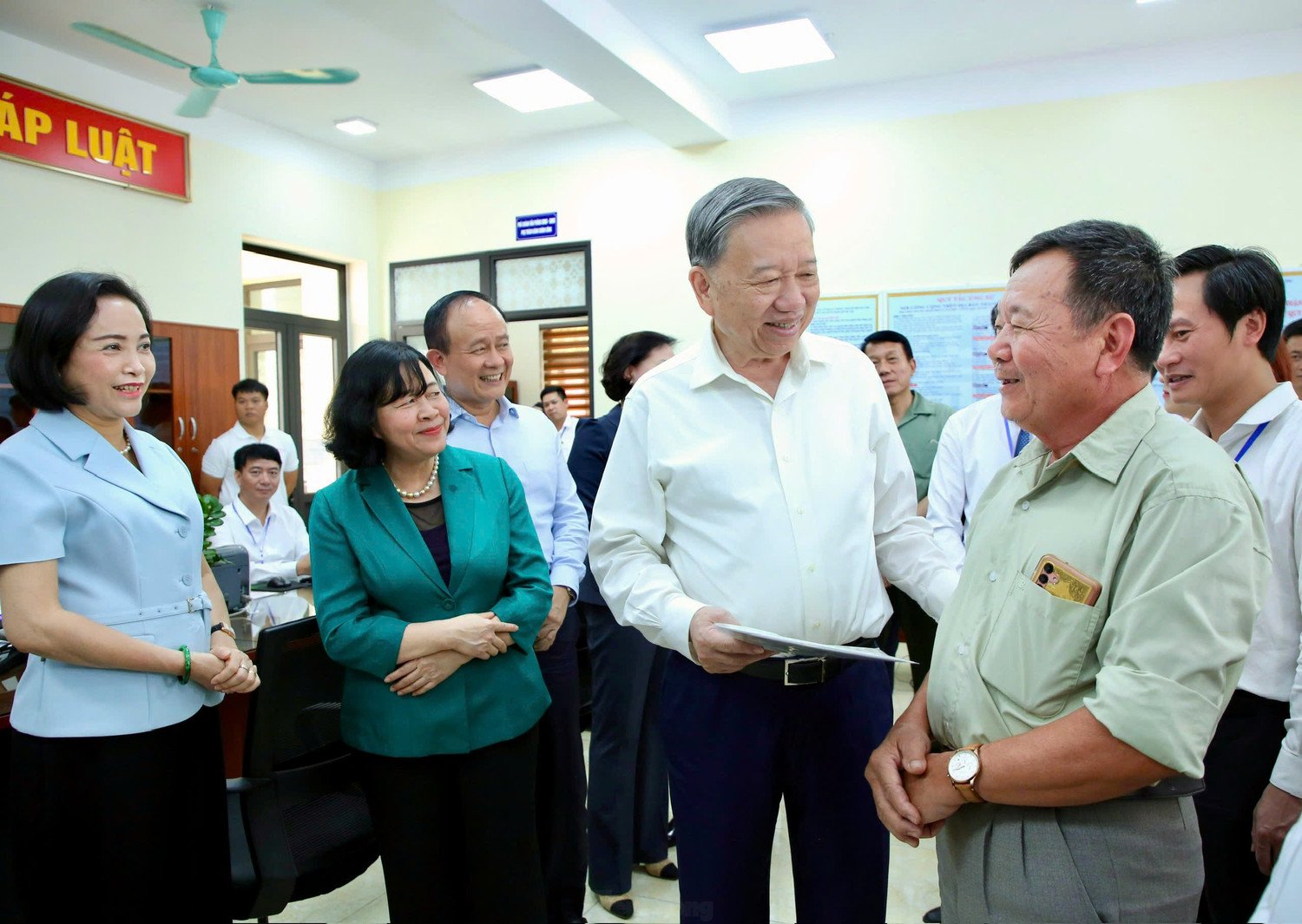
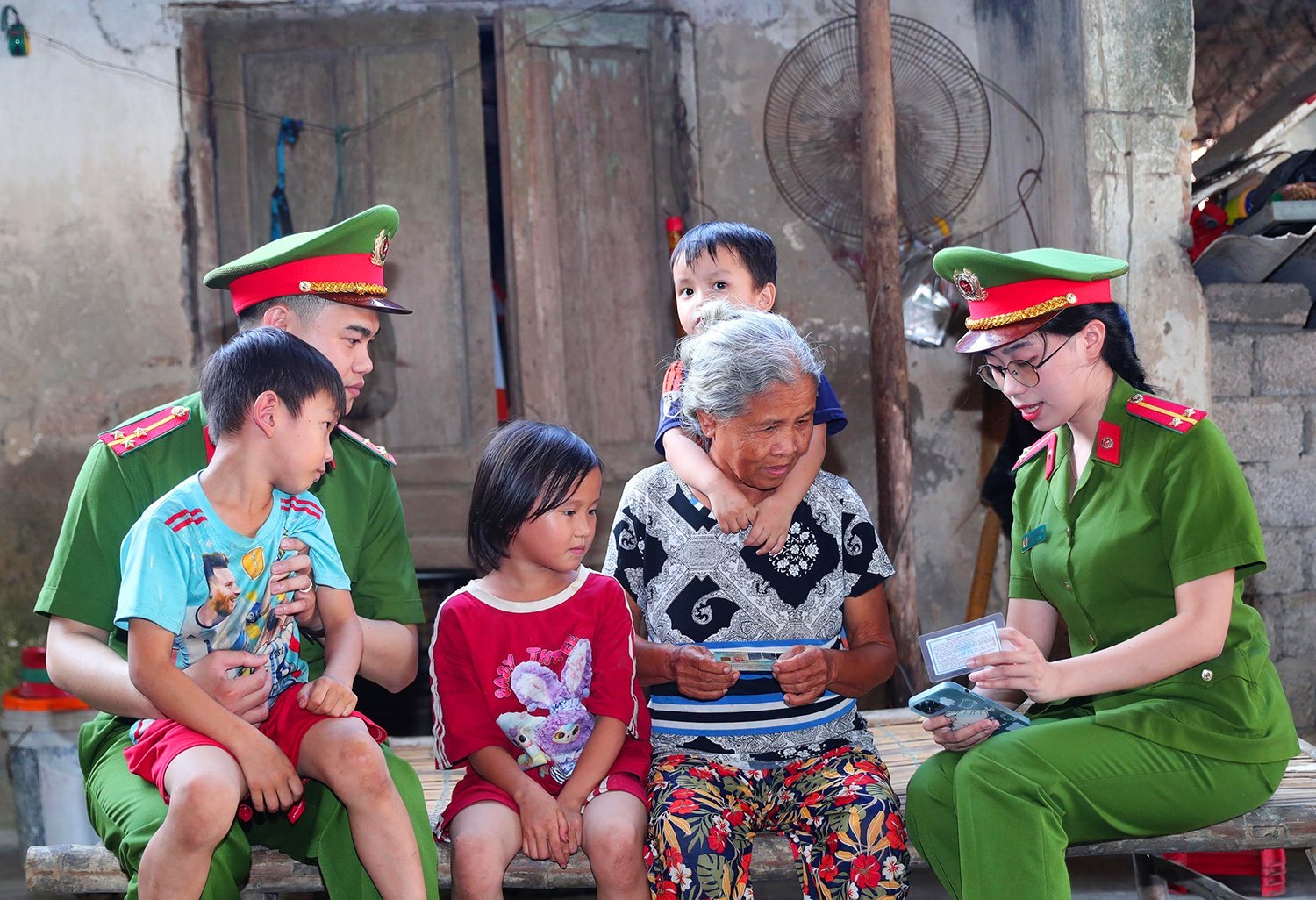
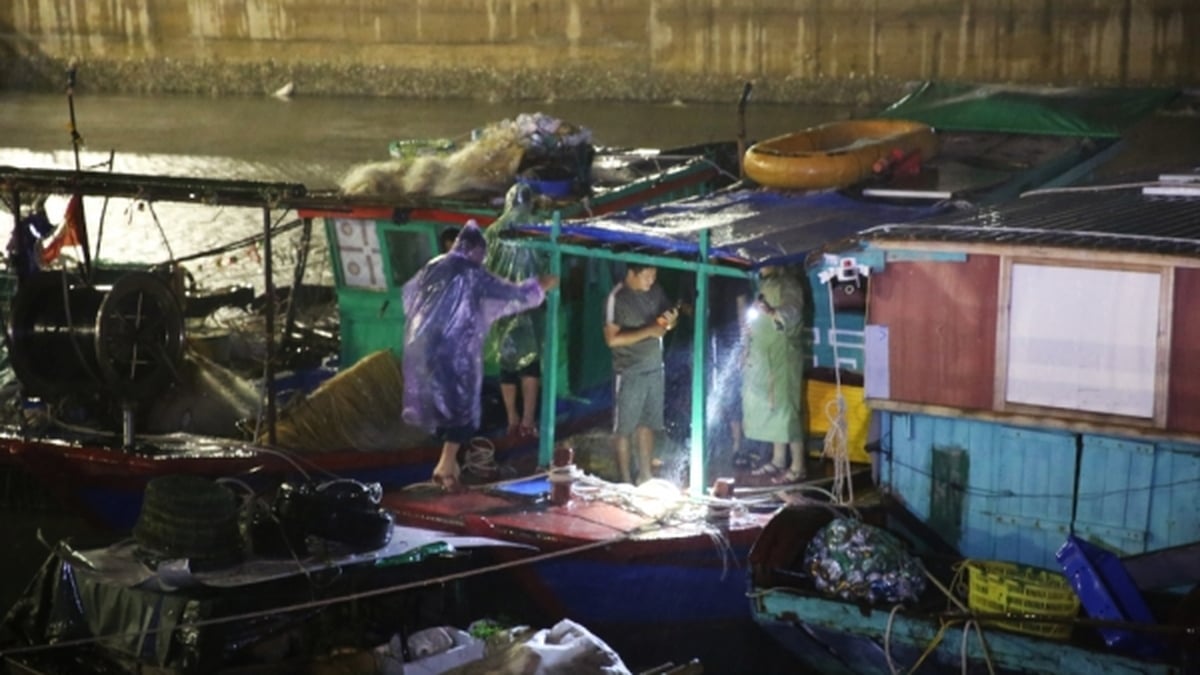
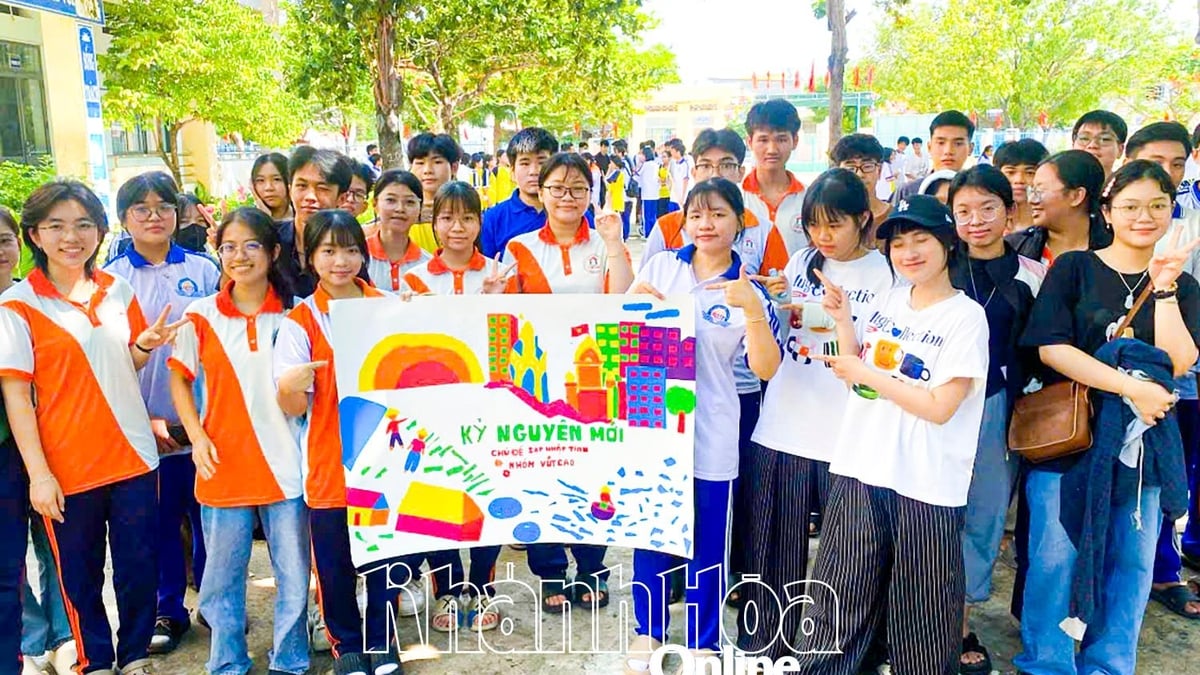
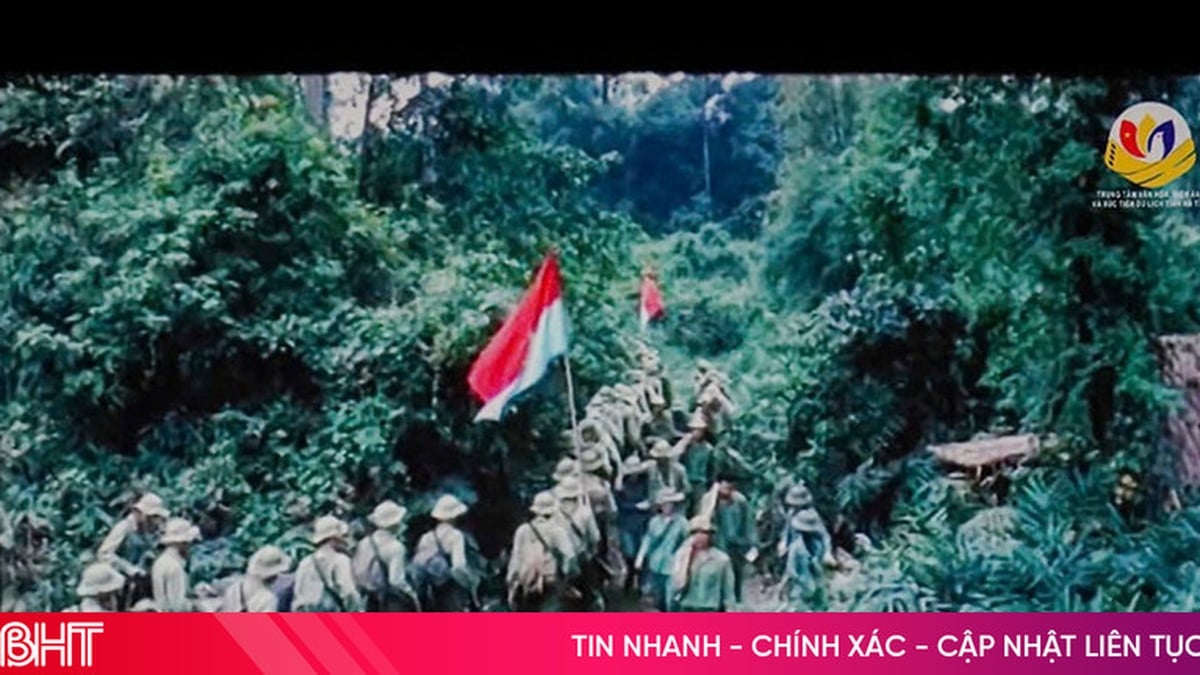
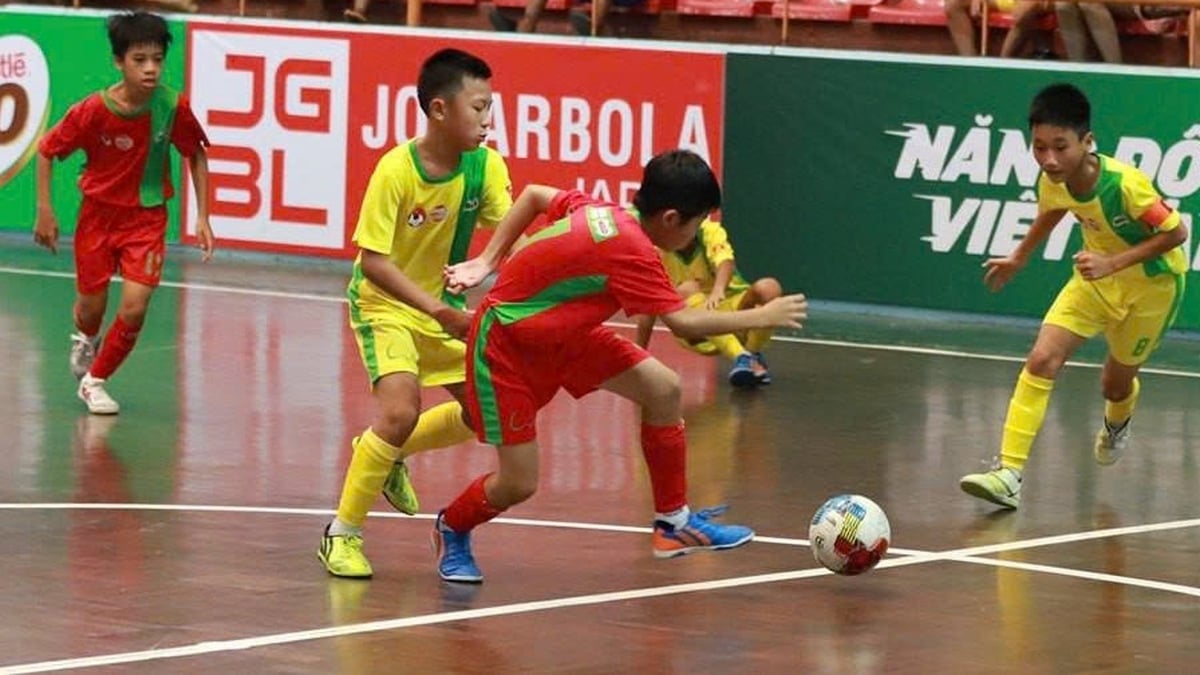
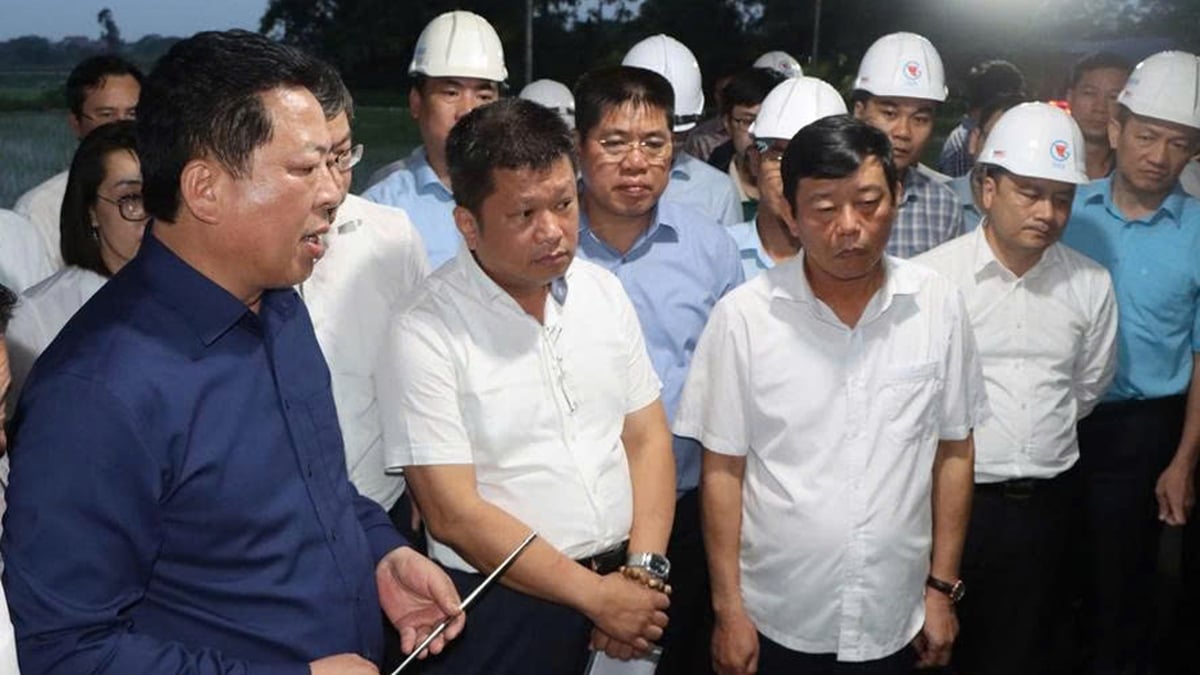
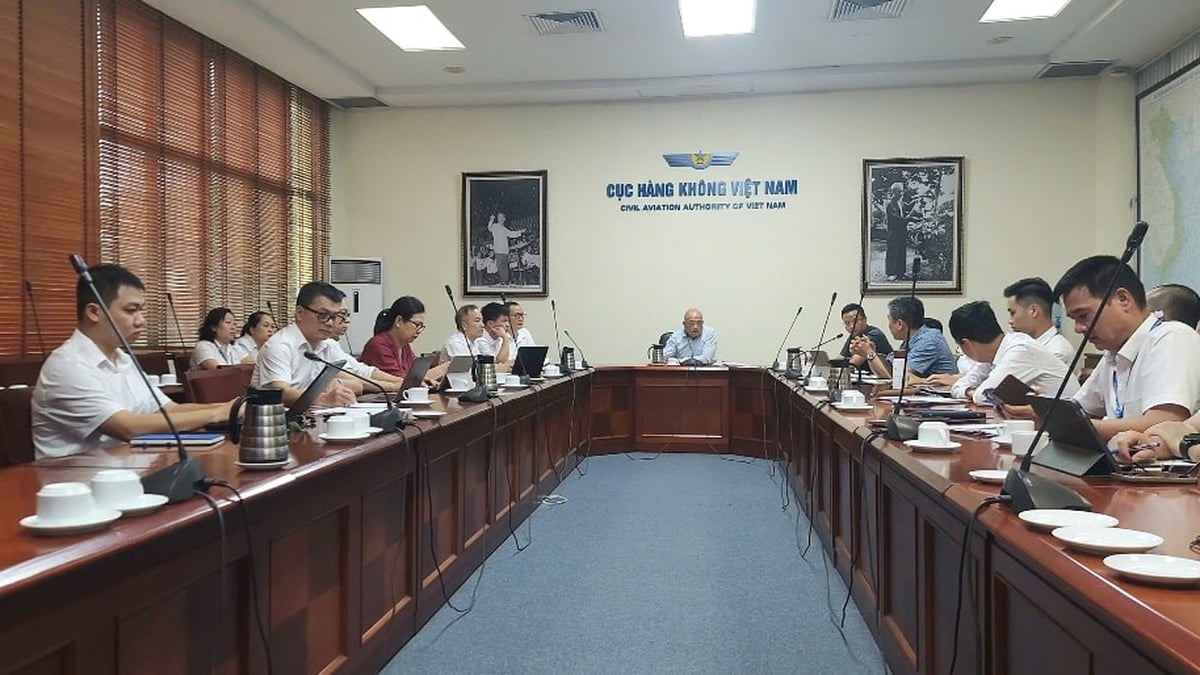
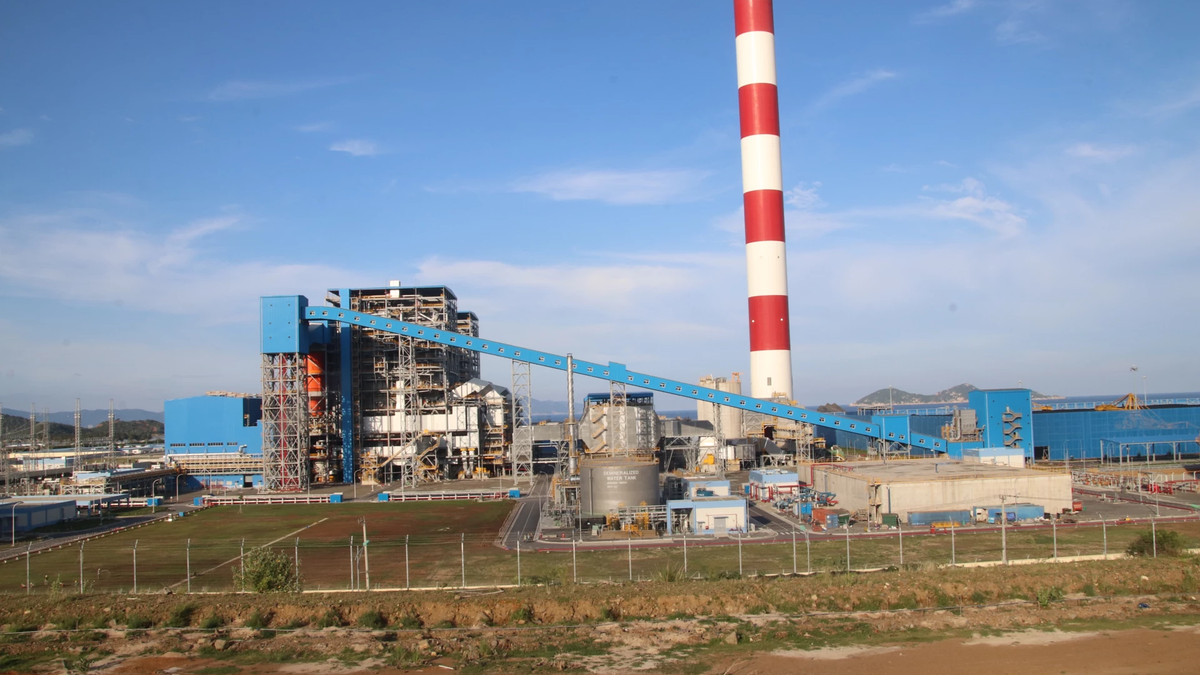


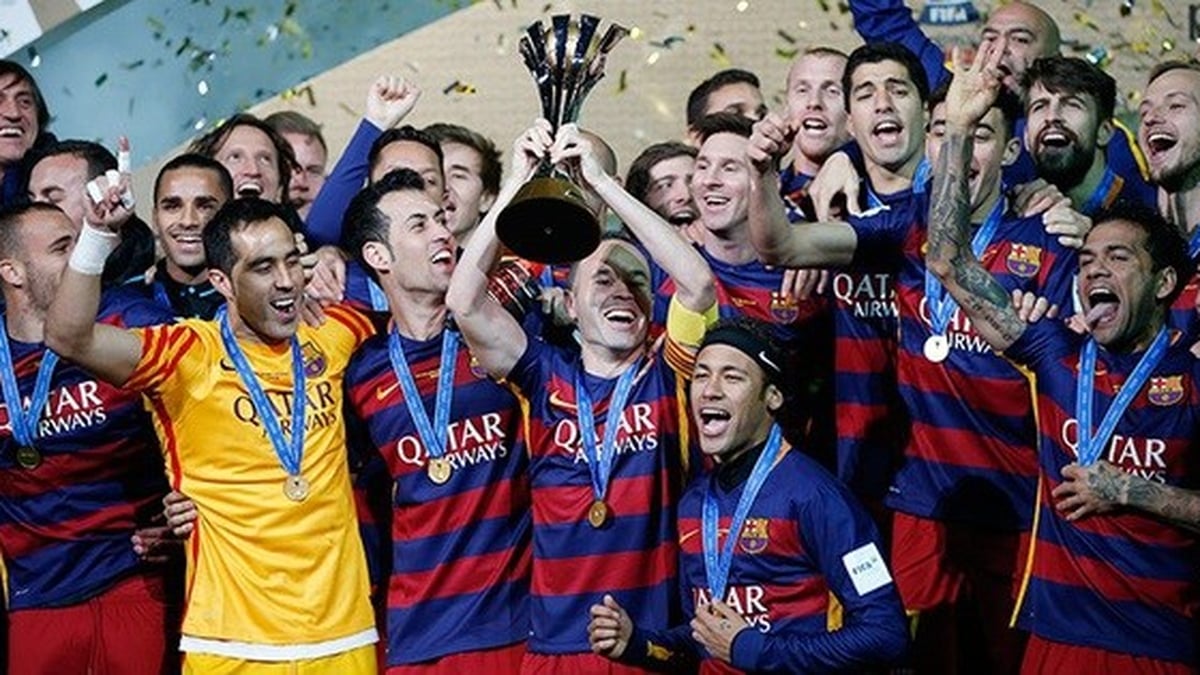












![[Photo] National Assembly Chairman Tran Thanh Man visits Vietnamese Heroic Mother Ta Thi Tran](https://vphoto.vietnam.vn/thumb/1200x675/vietnam/resource/IMAGE/2025/7/20/765c0bd057dd44ad83ab89fe0255b783)













































































Comment (0)